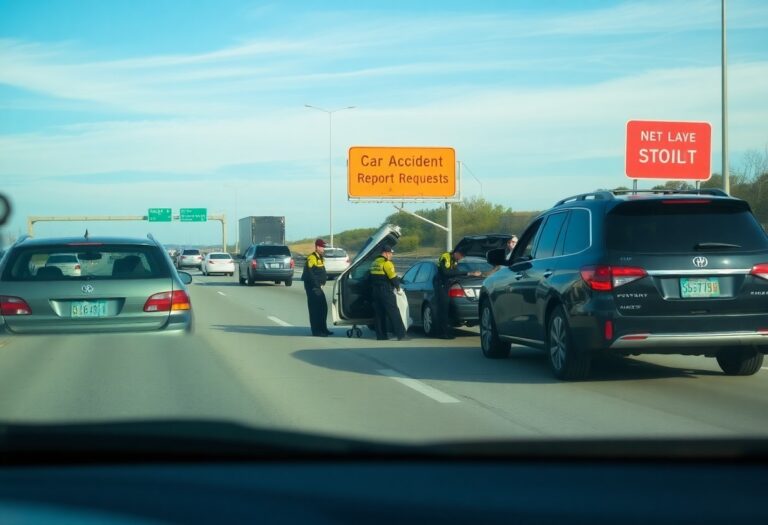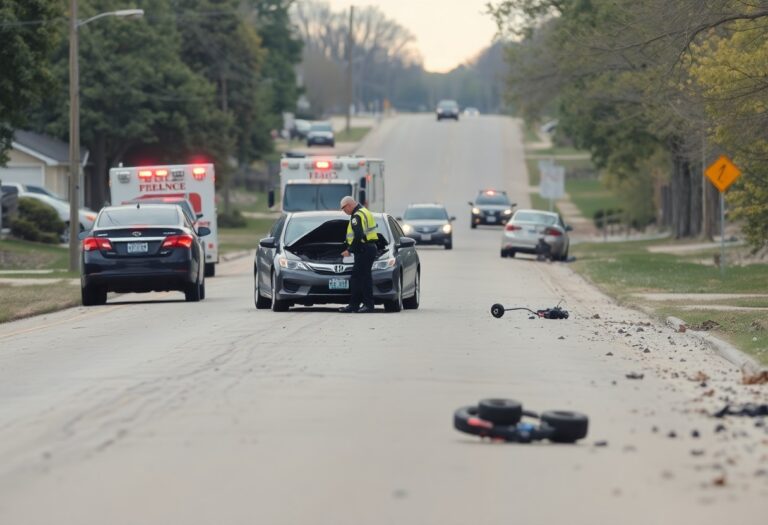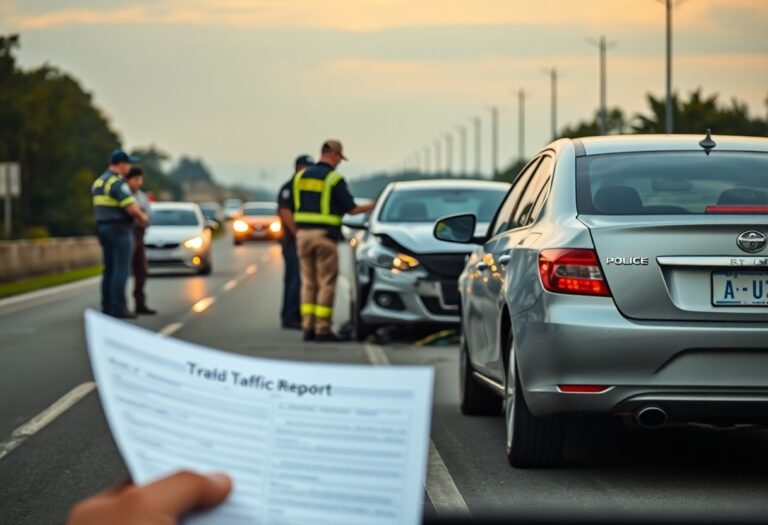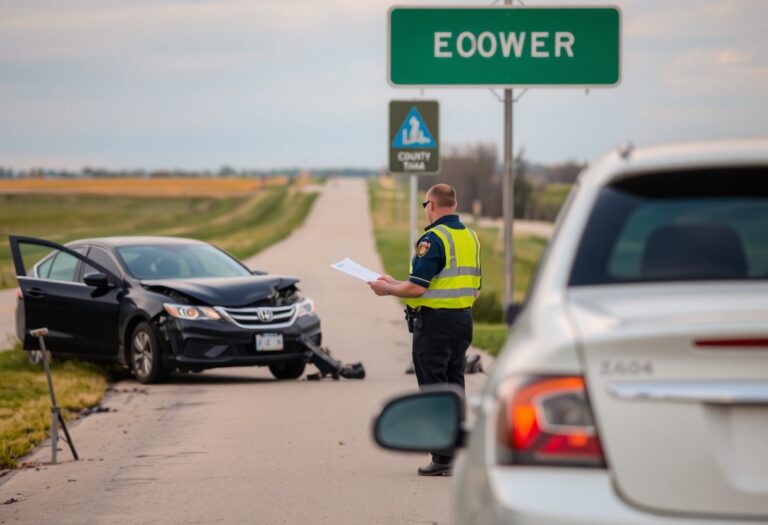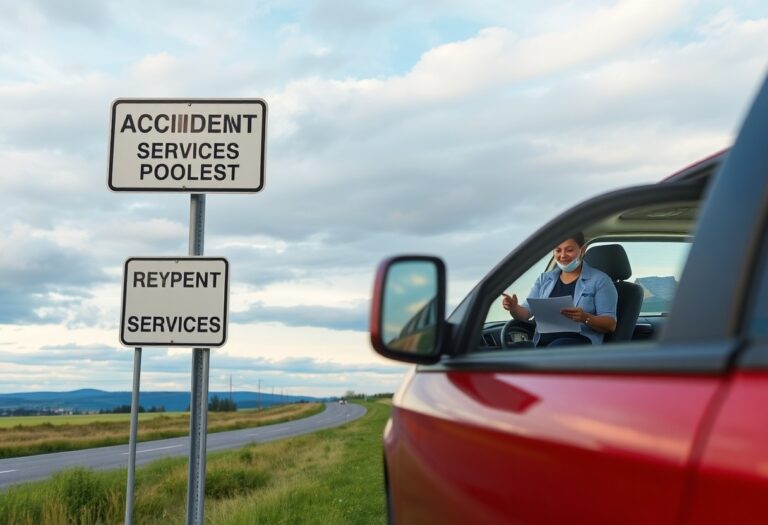Many residents and visitors in Wells County, Indiana, may find themselves in need of accessing crash reports for various reasons, whether for insurance purposes or legal matters. Understanding the process to locate these reports is crucial for your peace of mind and timely resolution of specific issues. This post will guide you through the steps you need to take, pinpoint valuable resources, and highlight important details to ensure you can efficiently obtain the information you need.
Navigating the Maze: Where to Request Crash Reports
Finding crash reports in Wells County can feel overwhelming, but knowing where to go simplifies the process. You have several options for obtaining these important documents, whether you’re seeking a report for personal records, insurance claims, or legal purposes. Identifying the right agencies to approach can save you both time and hassle.
Local Law Enforcement Agencies
Your first stop for crash reports will likely be the local law enforcement agencies in Wells County. The Wells County Sheriff’s Department and individual city police departments, like the Bluffton Police Department, maintain records of accidents that occurred within their jurisdictions. In these cases, requesting a report might involve filling out a form and providing details such as the incident date and location.
State Police and Online Platforms
Another reliable option is to contact the Indiana State Police. They provide a centralized platform for accessing crash reports state-wide. You can either visit their website or call their local office for assistance. Online platforms allow you the convenience of obtaining reports from the comfort of your home, streamlining the often tedious task of paperwork.
The Indiana State Police’s online system is designed to be user-friendly, allowing you to search for crash reports based on criteria like date and involved parties. Typically, you may need to pay a nominal fee to access the report, making it a cost-effective solution for many. Additionally, organizations such as LexisNexis and CrashDocs offer comprehensive databases where you can find public crash reports from multiple counties, including Wells County, thereby broadening your search options when necessary.
Time is of the Essence: Understanding Report Accessibility
Report accessibility directly influences how quickly you can navigate the aftermath of an accident. Wells County offers a structured approach to accessing crash reports, but knowing the specific timelines and potential costs associated with obtaining these reports is vital for a smooth experience. By understanding these factors, you can ensure that you receive the documentation you need without unnecessary delays.
Report Availability Timeline
Crash reports in Wells County typically become available within 5 to 7 business days following an accident. However, this timeline may vary based on the complexity of the incident, ongoing investigations, or other administrative factors. If you require your report sooner, contacting local law enforcement can sometimes expedite the process.
Fees and Charges Associated with Reports
Accessing crash reports in Wells County may involve nominal fees. Generally, you can expect to pay around $5 to $15 for a digital or printed copy. Always check with the specific department to confirm current fees, as these can change depending on the type of report or any special requests you make.
The cost of obtaining crash reports can add up, particularly if you require multiple copies or additional documentation. For example, accident diagrams or supplemental reports may incur extra charges. Budgeting for these expenses ahead of time can help alleviate any financial stress as you navigate the reporting process. Keep in mind that most departments will provide information on acceptable payment methods, which often include cash, check, or electronic payments, streamlining your access further.
Essential Information For Your Search
Gathering the right information can make your search for crash reports in Wells County more efficient and effective. Ensuring that you have all relevant details about the incident allows you to expedite the process and avoid unnecessary delays. Key data includes dates, locations, involved parties, and any report numbers associated with the incident. This organized approach not only simplifies the retrieval of documents but also ensures that you receive accurate information tailored to your needs.
Necessary Details for Requesting a Report
To successfully request a report, you’ll need specific details. This typically includes the date and time of the accident, the location, and the names of the individuals involved. Additionally, any preliminary report numbers can be beneficial. Providing complete information increases your chances of obtaining the correct report quickly and accurately, thereby enabling you to focus on addressing any further actions required.
Types of Reports Available
In Wells County, several types of reports are available to accommodate different information needs. The most common reports include accident reports, incident reports, and supplemental reports. Accident reports detail the circumstances surrounding a collision, while incident reports may cover other types of emergencies or events not classified as accidents. Supplemental reports can provide further insights based on ongoing investigations or updates. Each type serves a particular purpose and helps you gather comprehensive information about the event in question.
- Accident Reports: These documents detail the specifics of motor vehicle accidents.
- Incident Reports: Useful for understanding events beyond vehicle collisions.
- Supplemental Reports: Offer additional insights during ongoing investigations.
- Traffic Citations: Records related to violations during the event.
- Insurance Reports: Necessary for filing claims or seeking compensation.
| Type of Report | Description |
| Accident Reports | Document specifics of motor vehicle collisions. |
| Incident Reports | Cover other emergency situations beyond accidents. |
| Supplemental Reports | Include updates from ongoing investigations. |
| Traffic Citations | Document violations associated with the incident. |
| Insurance Reports | Necessary for claim filings and compensatory actions. |
When dealing with the aftermath of an accident, accessing the right type of report is paramount for understanding the legal and regulatory implications. As you navigate the collection process, knowing which report best suits your requirements will significantly aid in your planning and recovery strategy. Each type of report can provide unique insights and details—crucial for any claims or legal considerations you may encounter in the aftermath.
- Accident Reports: Vital for understanding the scenario surrounding vehicle accidents.
- Incident Reports: Helpful for a broader spectrum of emergencies.
- Supplemental Reports: Important for any updates post-accident.
- Traffic Citations: Crucial for understanding legal ramifications.
- Insurance Reports: Important for processing any potential claims.
| Type of Report | Description |
| Accident Reports | Detail the specifics of collisions. |
| Incident Reports | Document other emergency events. |
| Supplemental Reports | Provide updates post-event. |
| Traffic Citations | Outline legal violations. |
| Insurance Reports | Essential for claims processing. |
Common Pitfalls: Errors to Avoid When Seeking Reports
Seeking crash reports can be a straightforward process, but various pitfalls can complicate your efforts. Failing to understand eligibility requirements or neglecting to gather necessary documentation can lead to delays and frustration. Awareness of these common errors can save you time and ensure you obtain the information you need without unnecessary hurdles.
Misunderstanding Eligibility
Eligibility can often be misunderstood, particularly regarding who can request a crash report. Many believe that anyone involved in the incident can access the document, but only authorized individuals, such as drivers, passengers, or their legal representatives, are eligible. This restriction can lead to disappointment if you’re not among the authorized individuals.
Neglecting Required Documentation
Your success in obtaining a crash report depends significantly on the documentation you provide. Without the correct identification, such as a valid driver’s license or police report number, your request may be denied. Ensure that all required documents are ready beforehand to streamline the process and avoid unnecessary complications.
Most agencies will specify the documentation needed for your request. Often, a valid government-issued ID and pertinent details of the crash, like the date and location, are necessary. Failure to prepare these documents can result in extended waiting periods, or worse, a complete rejection of your request. Double-check requirements on the local law enforcement or DMV website to ensure you have everything needed upfront.
Real-Life Implications: How Crash Reports Impact Insurance and Legal Matters
Crash reports hold significant weight in both insurance claims and legal actions arising from accidents. These reports not only provide a detailed account of the incident but also help determine fault, which can directly influence the outcome of claims and legal proceedings. Understanding their role can guide your next steps following an accident and ensure you receive the benefits or resolutions that are rightfully yours.
The Role of Crash Reports in Insurance Claims
Insurance companies rely on crash reports to assess the details surrounding an accident. By reviewing these documents, they determine liability and the amount of compensation you may be owed. This means that any discrepancies or inaccuracies in a report could directly affect your claim, potentially leading to lower payouts or even claim denials.
Legal Proceedings: The Importance of Accurate Reports
In legal proceedings, the accuracy of crash reports is vital. They often serve as a critical piece of evidence, detailing the conditions, locations, and parties involved in the accident. Courts place substantial emphasis on these reports to draw conclusions about fault, negligence, and damages, making it vital that they reflect the truth of what occurred.
For example, in a recent case in Wells County, inaccurate details in a crash report delayed a settlement for several months. The discrepancies led to disputes about who was at fault, prolonging the process and increasing legal fees for both parties. An accurate report could have provided clarity and aided in a quicker resolution. Therefore, ensuring that the police report reflects the reality of the situation is not just beneficial but can significantly influence the efficiency and outcome of legal proceedings.
To wrap up
On the whole, navigating the process of obtaining crash reports in Wells County, Indiana, is straightforward when you understand the necessary steps. By knowing where to request your report, the information you need, and any associated fees, you can ensure your experience is efficient. Utilizing local resources such as law enforcement agencies and online platforms can further simplify your search. With this knowledge, you can confidently access the information you need regarding traffic incidents in your area.







